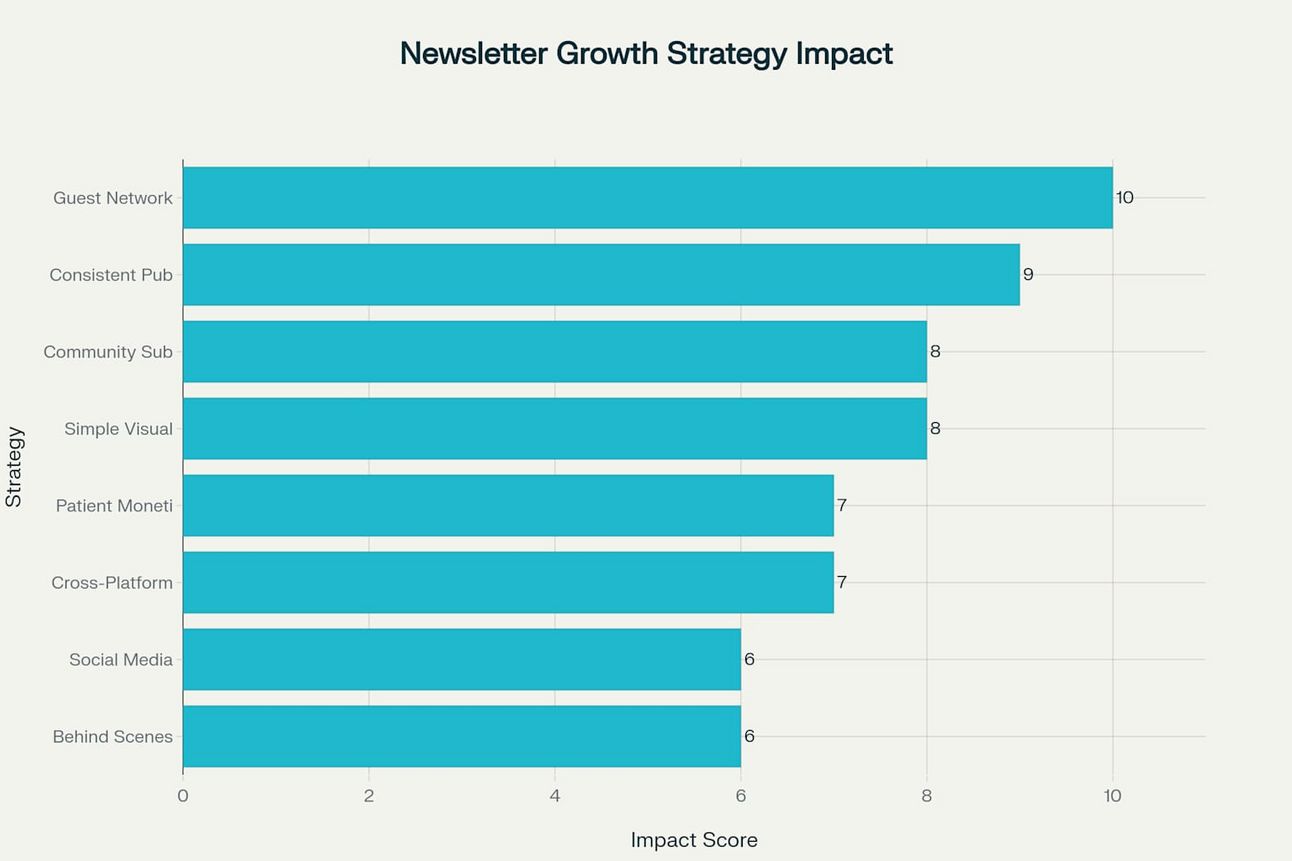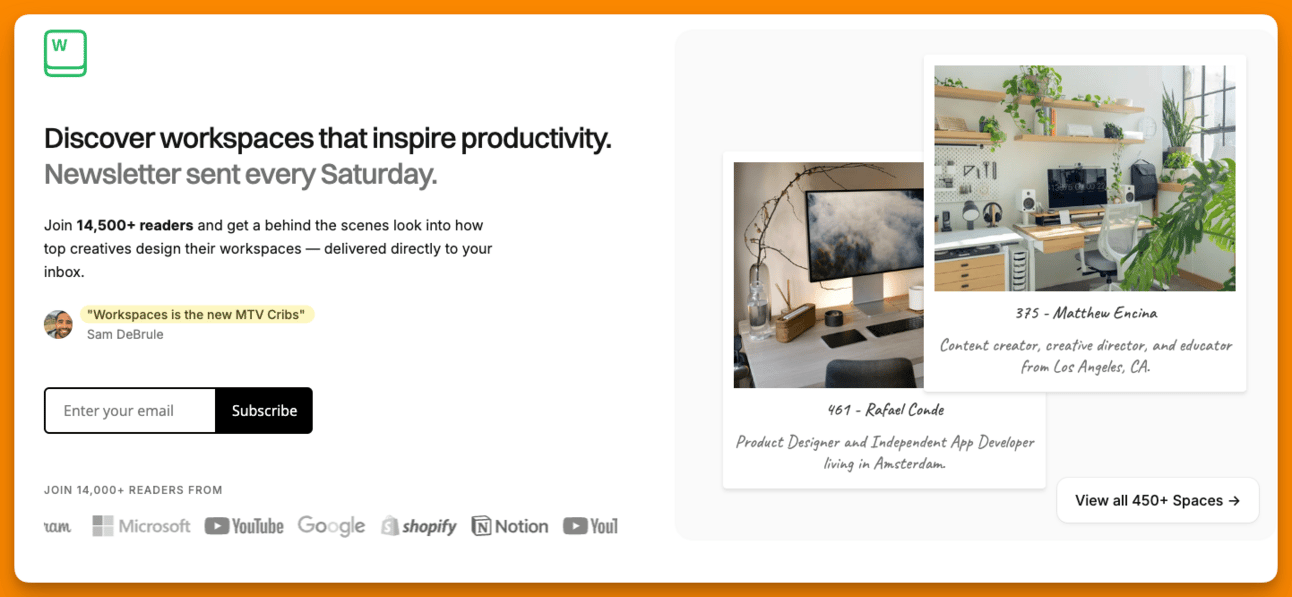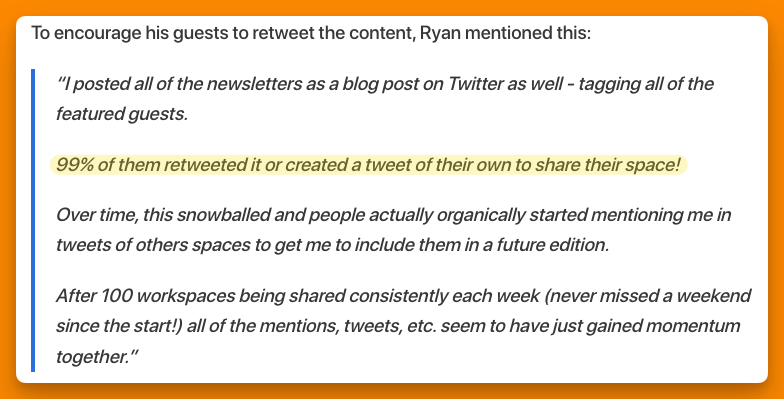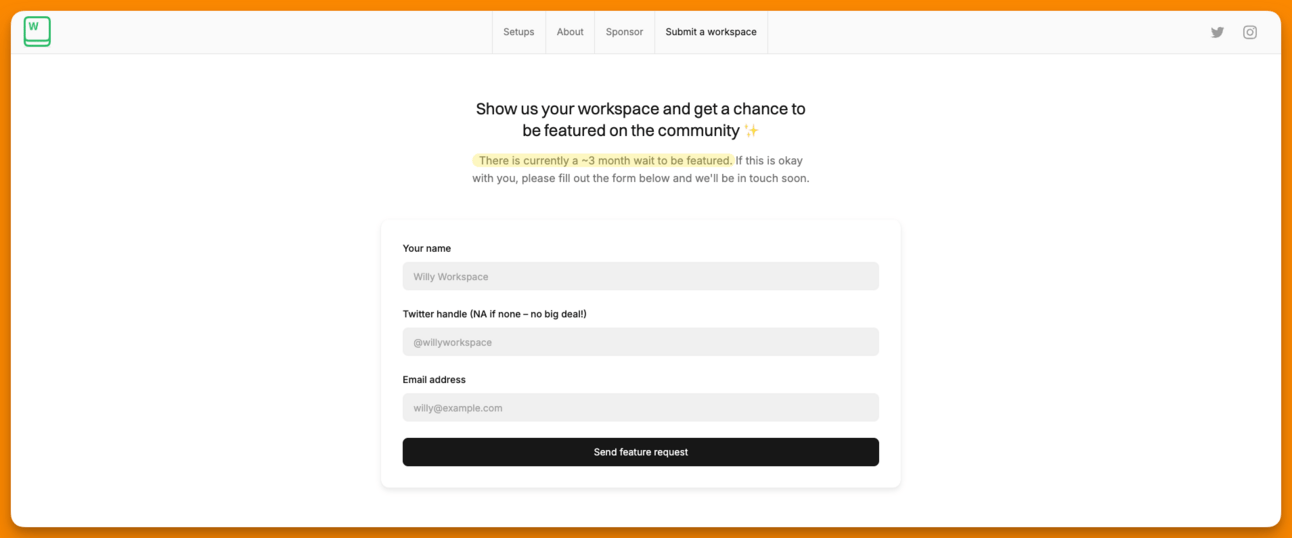- Letters Bydavey
- Posts
- LBD #018: Search Engines Aren't The Only Source of Organic Traffic
LBD #018: Search Engines Aren't The Only Source of Organic Traffic
Learn how Workspace grew 14000+ subscribers organically.
Ever wondered how a simple idea, sharing photos of people’s desks, turned into a booming online brand? Workspace.xyz did just that.
Ryan Gilbert grew a dedicated following of over 50k followers on X & Instagram and 14k email subscribers just by curating desk setups of people.
But what’s the secret behind their steady growth and loyal following? Let’s dig into the story and see what really made it all work.
Business Model
Workspace.xyz makes money by running a newsletter that shows off people’s desk setups and workspaces. Ryan Gilbert gets paid by companies that want to sponsor the newsletter and put their ads in front of readers.
People send in photos of their own workspaces to get featured, which keeps the content fresh and interesting.
The more people read and share the newsletter, the more valuable it is to sponsors, and that’s how Workspace.xyz earns steady income.
Lessons To Learn From Workspace:
Interestingly, Workspace has little to no traffic from search engines. It’s purely from social media, especially X, where most professionals spend their time.
How It All Started?
Ryan Gilbert didn't set out to build a million-dollar newsletter empire. He just started showing people's desks during the COVID lockdowns. But what happened next became one of the best examples of organic brand growth you'll find anywhere.
Here's the complete breakdown of how Workspaces grew from zero to 52,000+ followers across social media, built a $2,000/month revenue stream, and got acquired by a Y Combinator startup, Loops & got re-acquired by Ryan after two years for just $1.
The story is wild, and all this happened without spending a dime on ads.
What Made Workspaces.xyz Different?
#1 The Simple Concept That Won
While everyone else was trying complex growth hacks, Ryan did a stupidly simple thing that was trending in 2020, and his newsletter was called "MTV Cribs for workspaces".
That one comparison made people instantly understand what they were getting.
The lesson here isn't about workspaces. It's about finding a simple way to explain your idea that makes people go "oh, I get it" immediately.
#2 The Network Effect Strategy
Here's the brilliant part that most people miss. Every person Ryan featured became a marketing professional for him. When someone got featured in Workspaces, they shared it with their entire network.
Ryan says, "99% of them retweeted it or created a tweet of their own to share their space".
This isn’t luck, this is strategy.
Think about it. If you feature someone, they have every reason to share it.
Their friends see it. Some of those friends want to be featured, too. The cycle continues.
Workspaces posts regularly get 40K to 300K+ views on Twitter. The secret wasn't fancy editing or professional photography. It was giving people something worth sharing.
People love seeing behind-the-scenes stuff. They love judging other people's setups. They love getting ideas for their own workspace. Ryan tapped into all three psychology triggers with one simple format.
The Growth Strategies That Worked For Workspaces
To make sense of what worked for Ryan, I did some digging and came up with the following strategies that had an impact on the newsletter’s growth.

Key growth strategies that built the Workspaces newsletter's success
For solopreneurs aiming to build a brand, the Workspaces.xyz story offers clear, practical lessons.
First, featuring others in your content is a powerful growth move. When you highlight people, they’ll often share your work with their own networks, giving you free exposure and helping you reach new audiences without spending on ads. This is especially useful if you’re starting out and don’t have a big following.
Second, being consistent matters more than being perfect. Ryan Gilbert never missed a newsletter, and that reliability built trust with his readers. If people know when to expect your content, they’re more likely to stick around and engage.
Third, keep your content simple and visual. Workspaces focused on photos and short Q&As, which are easy to consume and share. Avoid long, complicated posts. People scroll fast and want something that catches their eye.
Fourth, let your community help you create content. Ryan has a waitlist of people wanting to be featured, so he will probably never run out of material.
If you can encourage your audience to participate, it makes your job easier and keeps your brand fresh.
The key takeaway:
Grow by making it easy for others to talk about you, show up reliably, keep things simple, and involve your community. These aren’t flashy tricks, they’re habits that build real, lasting results.
Business Lessons
Apart from Ryan’s full-time role at Beehiiv, Workspace is only bound to grow with little to no effort from Ryan. There’s a waitlist with high-quality content that will go on for months, adding more MRR to Ryan’s pocket.
Here are a few business lessons I can think of based on what I learnt from Ryan.
Content That Shares Itself: Create viral-ready content
The Network Effect: Make your users your marketing team
Why Simple Ideas Win Big: Find your "MTV Cribs" concept
Cross-Platform Domination: Create once, distribute forever
The Consistency Engine: Build unbreakable publishing habits
Community, Not Customers: Build true fans who’d promote you
The Patient Money: Wait, till you make money from the right sponsors
What can you do now?
Follow me on LinkedIn to get better at content marketing
Find your first set of customers by promoting your SaaS here
Book a call for a 1-on-1 for a personalized content marketing strategy
Share your thoughts on what your biggest challenge is with growing SEO?


